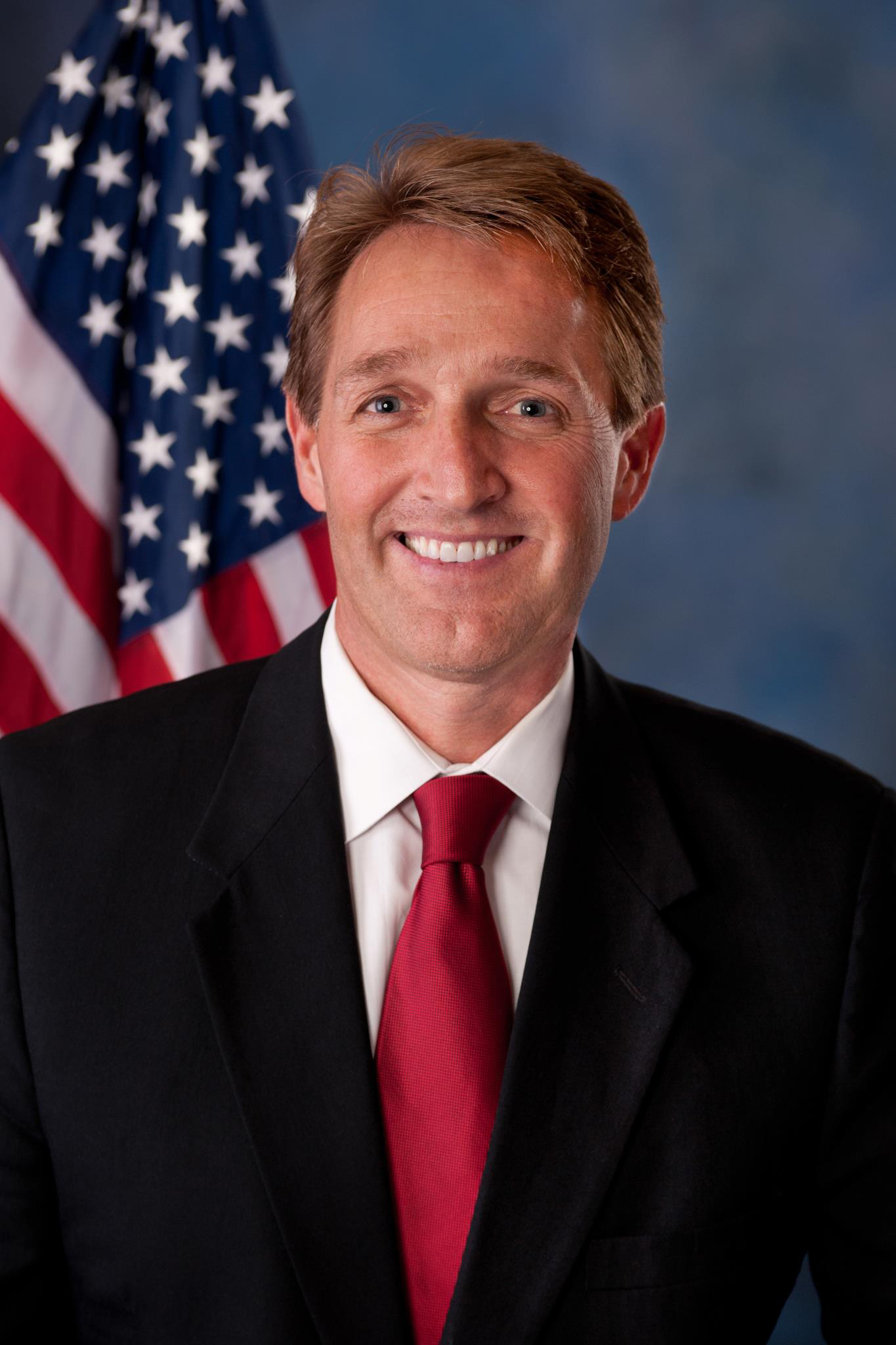
Wikimedia
On Thursday, to a crowd of more than 80 students and faculty, former Arizona Sen. Jeff Flake discussed the demise of bipartisanship in Congress and the political legacy of William F. Buckley Jr. ’50, the namesake of the group that hosted the event.
Flake, author of “Conscience of a Conservative: A Rejection of Destructive Politics and a Return to Principle,” has frequently voiced opposition toward the polarization of American politics and the conduct of President Donald Trump. Recounting a series of nostalgic anecdotes about Congressmen’s bipartisan friendships, Flake lamented at Thursday’s talk that this camaraderie no longer exists.
“Is polarizing partisanship the new order — the new normal now? And is it any worse today than it has ever been? We must look back to understand how we got to where we are today,” Flake said.
Flake developed a lasting friendship with Buckley, a conservative American political philosopher, while serving as the executive director of the Goldwater Institute, a conservative policy think tank, he said. Deeply inspired by Buckley’s writings, Flake said Buckley’s work set forth a principled direction for conservative politics. He added that he was deeply honored by the invitation from an organization commemorating Buckley’s legacy.
Flake then explained how his early influences instilled in him a deep appreciation for public service — he grew up in Snowflake, Arizona, in a community of Mormons, under the mentorship of his father, who served as mayor, and his uncle, who served in the Arizona state legislature.
In addition, Flake describes his hometown community as averse to partisanship, avoiding the affiliation of too many members of the Mormon church with one party — the church randomly assigned half of the congregation to Republican Party and the other half to Democratic Party. Coming from a politically neutral, nonpartisan community, Flake said that the rapid rise in partisanship in the past few years deeply troubled him.
Flake characterized the increasing party divides in Congress as a trend throughout the past few decades. For example, he illustrates the declining tendency of congressmen to live in Washington D.C. after the 1990s, which resulted in fewer interpartisan, family friendships.
According to Flake, prior to the 1990s, many Senators lived in Washington D.C., where children of Republican and Democratic senators attended schools together. In this environment, interpartisan friendships formed frequently, he said.
“This saying goes, you’ll never question the motives of your colleagues if you know the names of his or her children, and I think it very much held true,” Flake said.
However, Flake noted that these friendships among congressmen became less common in the 1990s, as Newt Gingrich, former Speaker of the House, urged congressmen to keep their families at home during their campaigns. With fewer interactions “across the party aisle,” Flake said that he has seen drastic changes in the dynamics between Democratic and Republican senators in the past 18 years he has served in Congress.
As a result of rarer interpartisan friendships, when senators come to the defense of other congressmen from the opposing party, their actions have been more frowned upon in recent years, he added. He explains the increasing divide in between Democrat and Republican congressmen by contrasting two instances when Congressmen came to the defense of a member of the opposing party.
Flake recounted that when he advocated for the bill lifting the travel ban to Cuba in 2010, he was accused by a Democrat senator of “only [wanting] to lift the travel ban so that he could get drunk on the beach.” However, another Democrat senator, who did not know Flake personally, came to his defense, demanding that this accusation be stricken from the Congressional record. When Flake asked why the Democrat senator defended him, the senator replied, “Flake, I know you’re a Mormon, you don’t drink,” he recalled.
Yet the same gesture of interpartisan camaraderie that the Democrat senator showed to Flake is no longer acceptable in the context of a more polarized Congress in more recent years, according to Flake. When Flake praised Tim Kaine, Hillary Clinton’s Democratic running mate in 2016, on social media, he was criticized by other members of the Republican party as lacking party allegiance, he said.
Flake reflected that partisan polarization has “shattered American politics,” calling for a cultural change in order to produce constructive conversation in the legislative body.
Matthew Jordan ’22, who attended the event, said that Senator Flake’s anecdotes were humorous and compelling.
“I was left with the impression that he is a genuine and honorable man,” he added.
Abhay Rangray ’20, who also attended the event, praised Senator Flake and asserted the harmful nature of polarization.
“Polarization is a growing problem due to existing political echo chambers that are easy to enter. Senator Flake did a wonderful job of describing the problem and attempting to find solutions to it. I’m hopeful that things will change as time passes,” he said.
The William F. Buckley Jr. Program was founded in 2010.
Viola Lee | kyounga.lee@yale.edu







